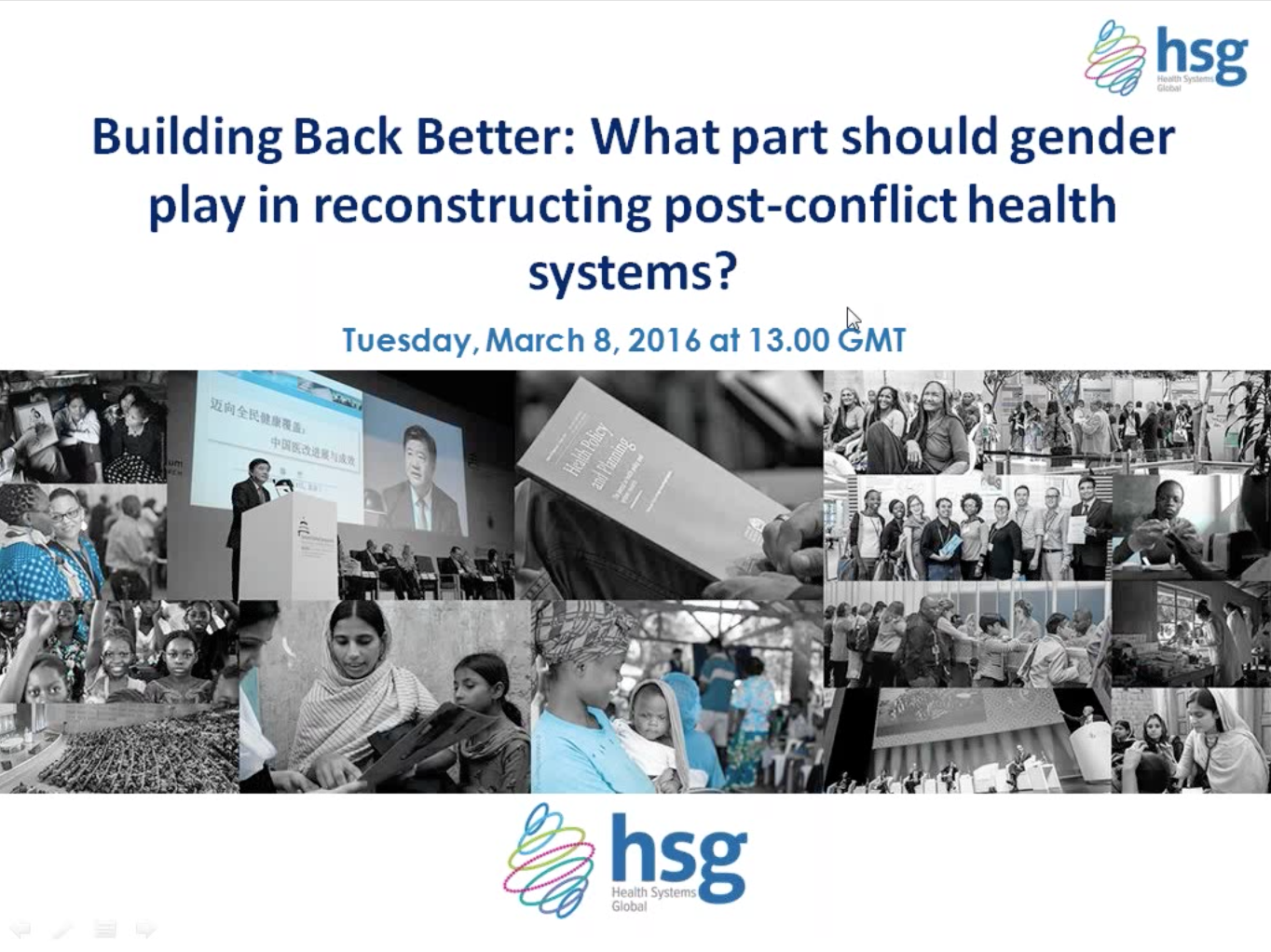

Gender and Post-Conflict Health SystemS
“Evidence suggests that health sector reform in post-conflict contexts, as well as in developing countries, has been largely blind to its impact on gender equity: it has failed to sufficiently identify the distinct health needs and experiences of men and women, analyse the factors that contribute to that difference, and respond accordingly.”
- Professor Valerie Percival
Gender and Post-Conflict Health SystemS
“Evidence suggests that health sector reform in post-conflict contexts, as well as in developing countries, has been largely blind to its impact on gender equity: it has failed to sufficiently identify the distinct health needs and experiences of men and women, analyse the factors that contribute to that difference, and respond accordingly.”
- Professor Valerie Percival
Throughout the world, gender norms, roles and expectations restrict and undermine women's potential, behaviour and freedom. The turmoil and violence of war can exacerbate inequalities between men and women.
As the conflict fades, however, possibilities are created for profound change. Donor funds flow, social norms are in a state of flux and there may be an appetite for political change.
After the destruction, death and devastation of war, a window of opportunity can open for social reform in gender and health. A chance to "build back better”.
About this website
This website condenses the main findings from ground-breaking research carried out by the SIPRI working group on gender and the ReBUILD consortium. Their analysis includes:
a review of the literature on health system reform in post-conflict settings and developing countries;
an examination of international priorities in gender equality through an analysis of consolidated appeals for five countries affected by conflict;
four case studies of countries emerging from conflict.
Case studies
Website sections
Further resources
Definitions
The terms "gender equality" and "gender equity" are used practically synonymously. In fact, their meanings are related but distinct.
GENDER EQUALITY
Gender equality has a broader social and political connotation, embracing equal rights, opportunities and resources. Ensuring that men and women have equal rights, while essential, can nevertheless overlook the complex factors which lead to inequality between men and women, including in health. For this reason the concept of equity is key.
GENDER EQUITY
Gender equity is a subjective concept rooted in justice, parity and fairness between men and women.
Gender equity in health acknowledges the differences between women and men: the biological and social factors which cause disparities in health. Crucially, it is based not only on the principle of equal opportunities and rights but an absence of bias. Although the impact of gender disparities in health is usually greater for women, men’s health too can suffer from the effects of gender norms.
GENDER EQUITABLE HEALTH SYSTEM
A "gender equitable health system" is used to mean a health system, founded on the principles of gender equality, which identifies and responds to the different health needs of women and men, thereby ensuring equitable access and health. The research team have proposed the following definition of the term gender equitable health system which:
- provides health care services to address the most urgent health needs of men and women across the life cycle;
- ensures that men and women can access and use those services, free from social, geographic and financial barriers;
- produces relevant health information broken down by sex to inform policy;
- ensures equitable health for men and women of all ages;
- provides equal opportunities for male and female health workers.




















